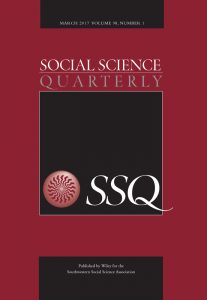Tech companies should employ more social scientists: here's why.
I don’t want to stereotype computer scientists. I still cringe when I remember clumsily insulting a room of (mainly) computer scientists at a conference by showing the wallet inspector scene from The Simpsons. There are, however, some computer scientist communities who give all computer scientists a bad name. Witness, for example, the infamous kick-starter project to give a food substitute called Soylent to poor people (which for non-sci-fi fans took its name from the dystopian film called Soylent Green...





1099-0860/asset/NCB_logo.gif?v=1&s=40edfd0d901b2daf894ae7a3b2371eabd628edef)
